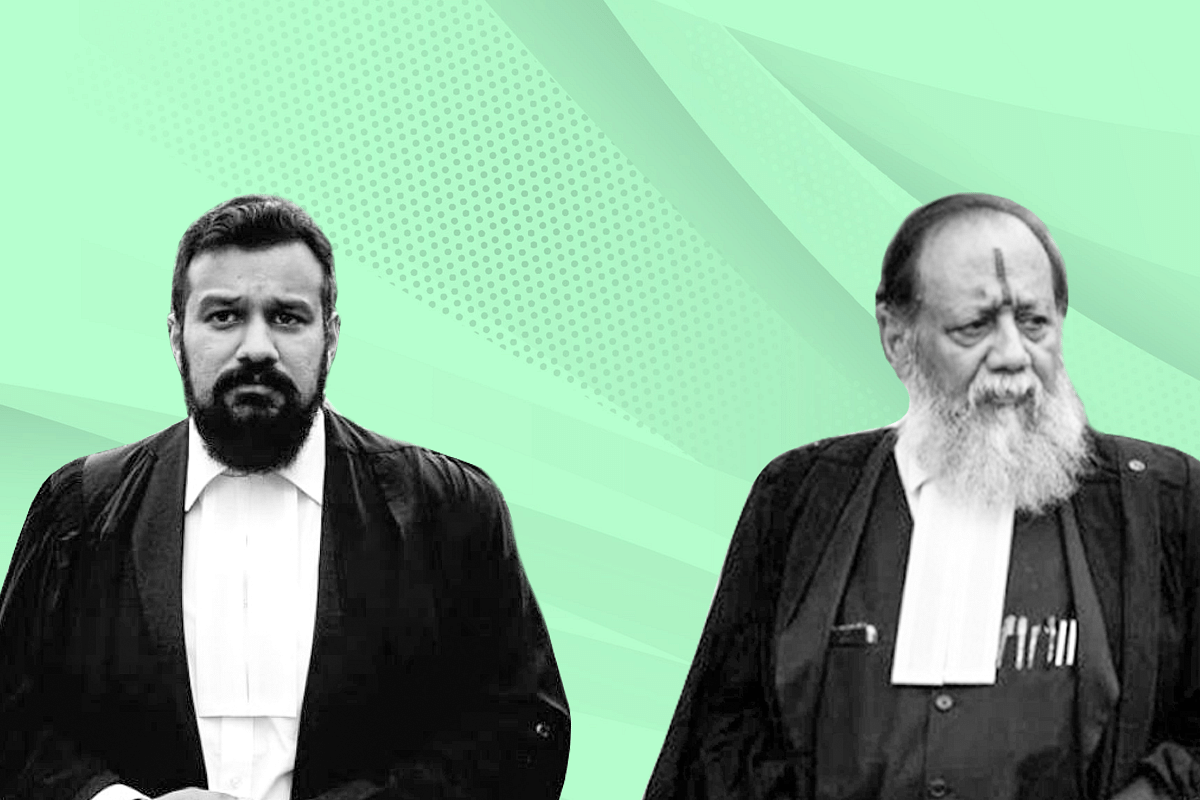News Brief
‘Four Plaintiffs With Me; Case Will Not Be Affected’: Lawyer Vishnu Jain After One Plaintiff Removed Father-Son Team From Case
- The VVSS president said that the father-son lawyer duo will not be associated with any of the cases filed by the organisation.
- There are 50 cases that VVSS has filed across the country on various temple-mosque related issues, including seven related to the Gyanvapi case.

Harishankar Jain and Vishnu Shankar Jain
In a major development in the Gyanvapi case, the Vishwa Vedic Sanatan Sangh (VVSS) president Jitendra Singh Vishen, whose niece, Rakhi Singh, is one of the six plaintiffs, has decided to remove the father-son lawyer duo – Harishankar Jain and Vishnu Shankar Jain – from the case.
Vishen said that the lawyers will henceforth not be associated with any of the cases filed by the organisation. There are 50 cases that VVSS has filed across the country on various temple-mosque related issues. Of these, seven are related to the Gyanvapi case.
Moreover, Vishen has also resigned from the Hind Samarajya Party formed by Harishankar Jain in 2021. He said, “I have resigned from Hind Samarajya Party in which I held the posts of National Convenor and National General Secretary.”
When asked what effect the disassociation of lawyers will have on the Gyanvapi case, Vishen said, “Jain is simply an advocate in this case and an advocate can be changed any time.”
Dismissing this, senior Jain blamed Vishen’s growing vested interests being the result of such a step, he said “Differences started arising as his (Vishen) ambitions started gaining momentum. He entered this case at my invitation and his niece Rakhi Singh was made a petitioner on his request. The other four plaintiffs Laxmi Devi, Sita Sahu, Manju Vyas and Rekha Pathak are with me. All this will not affect this case in any way”.
A recent chronology of the case
On 17 May, the Varanasi court ordered to seal the area where the “shivlinga” was reportedly found. The Supreme Court ordered that the wazukhana would remain closed but allowed Muslims to pray.
On 20 May, the Supreme Court transferred the case from the local court to a district-level court allowing a more experienced judge to handle the case, citing the ‘sensitivity’ of the case.
Further on 25 May, a fresh plea was filed in the Supreme Court seeking intervention in the Gyanvapi mosque dispute.
It contended that Muslims cannot assert any right in respect of any piece of land claiming to be mosques unless it has been constructed on legally owned and occupied virgin land.
The petitioner stated that property vested in the deity continues to be the deity’s property irrespective of the fact that any person has taken illegal possession and offered namaz.
The latest development is that the district court has adjourned for a further hearing on 4 July.
Also Read: Gyanvapi – The Moral Question
Introducing ElectionsHQ + 50 Ground Reports Project
The 2024 elections might seem easy to guess, but there are some important questions that shouldn't be missed.
Do freebies still sway voters? Do people prioritise infrastructure when voting? How will Punjab vote?
The answers to these questions provide great insights into where we, as a country, are headed in the years to come.
Swarajya is starting a project with an aim to do 50 solid ground stories and a smart commentary service on WhatsApp, a one-of-a-kind. We'd love your support during this election season.
Click below to contribute.
Latest